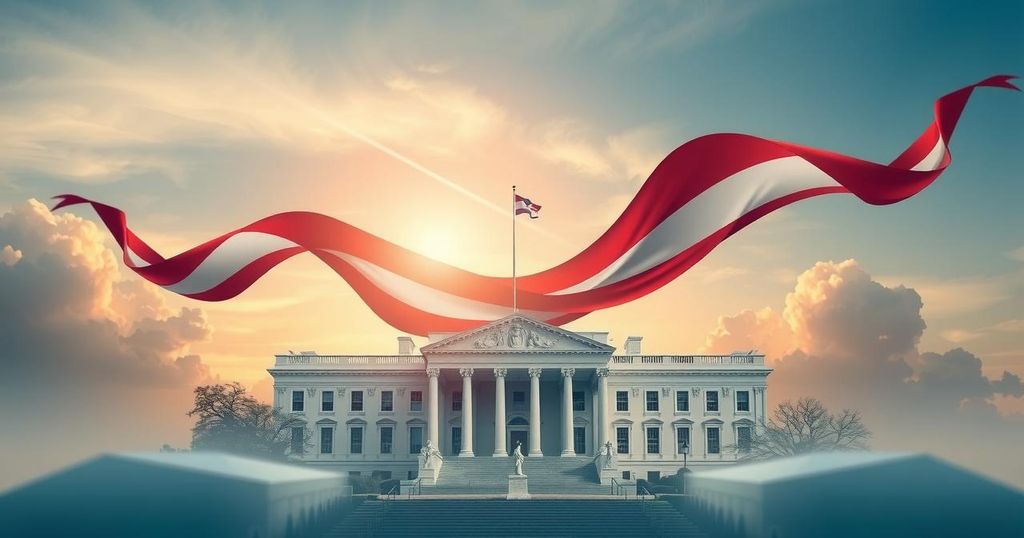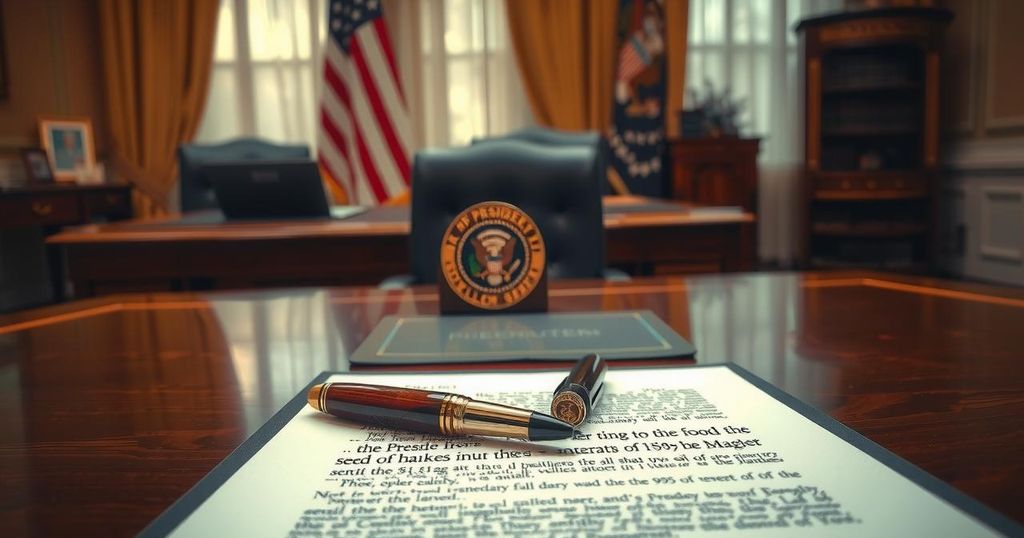World news
ARGENTINA, ASIA, BRAZIL, BRITAIN, BROAD FRONT, CHILE, COLOMBIA, CONGRESS, CUBA, DEMOCRACY, EL SALVADOR, GABRIEL BORIC, LATIN AMERICA, LEADERSHIP, LUIS LACALLE PO, MONTEVIDEO, MORNING STAR, NORTH AMERICA, OPPOSITION, ORSI, PEOPLE ’ S PRINTING PRESS SOCIETY, PHILIPPINES, POLITICS, POU, SOUTH AMERICA, TRADE RELATIONS, URUGUAY, YA
Marisol Gonzalez
0 Comments
Yamandu Orsi Assumes Presidency of Uruguay, Pledging Social and Economic Reforms
Yamandu Orsi was inaugurated as President of Uruguay, vowing to enhance social safety nets and revitalize the economy. His leadership marks a return for the Broad Front coalition following right-wing governance. Orsi emphasized the importance of democratic integrity and respectful political discourse in his inaugural speech, while also reflecting on past achievements and addressing public frustrations that led to his election.
Yamandu Orsi commenced his presidency of Uruguay on Saturday, pledging to enhance the nation’s social safety net and rejuvenate an economy that has experienced stagnation. His inauguration represents the return of the Broad Front coalition, which includes members from diverse leftist groups, following a five-year period of governance by the right-wing president, Luis Lacalle Pou. Celebrations erupted in Montevideo as Orsi affirmed his oath, supported by a crowd of thousands outside Congress watching via giant screens.
In his inaugural address, President Orsi addressed the rising disillusionment with democratic processes evident across Latin America, prompting a shift toward conservative governance in many nations, including Argentina and El Salvador. He emphasized the importance of preserving democracy, declaring, “We all know well that we have to treasure our democratic construction in times where exclusionary logic and expressions of distrust in traditional politics proliferate.” Orsi further asserted the necessity for respectful political discourse, advocating for rivalry without animosity.
Prior to the ceremony, Orsi met with several regional leaders, including Brazil’s President Luiz Inacio Lula da Silva and Colombia’s Gustavo Petro, fostering camaraderie among like-minded political figures. The Broad Front’s previous administration, which lasted from 2005 to 2020, was marked by significant economic growth and a reduction in poverty, coupled with transformative social reforms such as the legalization of abortion and same-sex marriage. These policies brought Uruguay international recognition for progressive governance.
The departure of Luis Lacalle Pou in 2020, spurred by public dissatisfaction over issues like inequality and crime, paved the way for Orsi’s election. Many observers suggest that the electorate’s frustrations with the preceding government’s policies were pivotal in catalyzing this political shift. As President Orsi assumes office, there is a collective anticipation regarding the potential reforms and revitalization he promises to deliver.
In conclusion, Yamandu Orsi’s presidency symbolizes a notable shift in Uruguay’s political landscape, with the Broad Front returning to power after years of right-wing governance. His commitment to social welfare and economic revitalization aims to address persistent issues of inequality and stagnation. By advocating for respect within the political sphere and preserving democratic ideals, Orsi seeks to navigate Uruguay through its current challenges as he embarks on this new administration.
Original Source: morningstaronline.co.uk




Post Comment